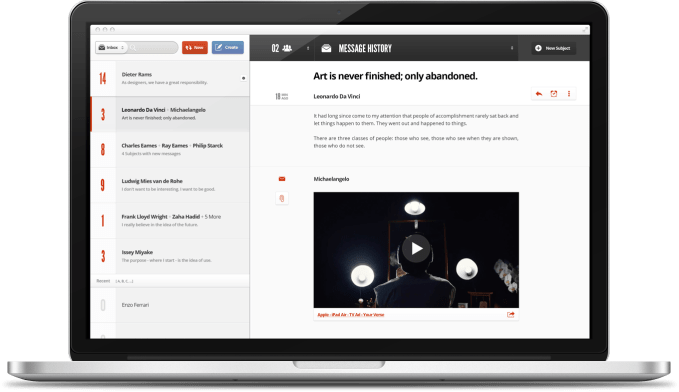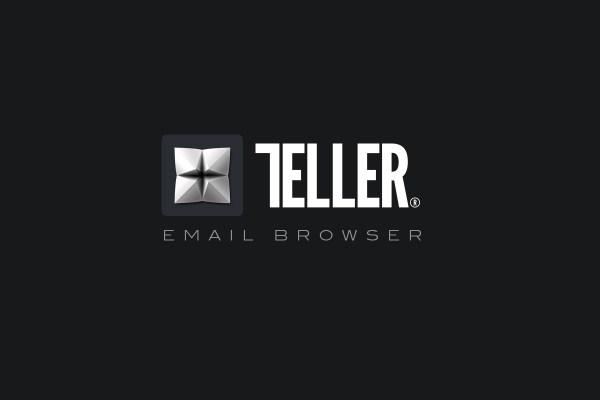If you’re in the U.S., you’re probably taking a well-deserved break from work and all the accompanying email today for the July 4th holiday. But when you return, your inbox is going to be a nightmare. An unsorted, unfiltered, unorganized mess. A new startup called Teller wants to help with that. The company also has a small round of funding as one of the first investments from MOOR, the private VC firm funded by Kaj Hed, majority owner of Rovio, creators of Angry Birds.
[Note: Early adopter? See invites below.]
Based in Stockholm, and founded by ex-Stardoll employees, including UX designer Joel Marsh and engineer Jimmy Brodd, Teller is the first product from Takumii Sweden.
Initially arriving as a Mac desktop application before expanding to mobile, the idea with Teller is to help people better manage their email through the use of algorithms that automatically sort your email for you, based on its importance to you.
This sort of concept, in and of itself, is nothing new. Gmail has offered a “Priority Inbox” view for several years now, and a number of startups have attempted to do something similar, the most recent example being Skimbox. But these third-party efforts can often be hit or miss, and because Teller isn’t yet available for testing, it’s hard to say for now how well it will fare.
But the company makes some interesting promises, at least: Teller users will not need to run through any special setup or “training” procedures; Teller won’t create extra folders; messages are never read by third-party servers.
And here’s the kicker – the company claims that Teller will be the first inbox that becomes more efficient if you check it less often.
According to Marsh, the “magic” part of Teller is built on your implicit behavior. “In other words, the app measures the actions you naturally do when you’re handling email — not unlike the way Google analytics measures what you click or how long you’re on a website — and then our algorithm uses that data to decide who matters, what you should see first, etc.” he explains.

Every time the user refreshes their inbox, the messages are automatically resorted based on that algorithm. Unread messages rise to the top, along with those from important relationships.
Marsh, who spent six months designing the Teller inbox after researching users’ problems and complaints about email for many months prior, says that there wasn’t really a “Eureka” moment here. He explains he’s always been the guy companies hire to solve problems. “More conversion. More engagement. Whatever,” Marsh says. “Email was a problem we chose to solve, because we think we can. Not an idea we are chasing.”
Stardoll, for those those unfamiliar, founded in 2004 and headquartered in Stockholm, grew to become one of the larger online social games. Teller’s founders worked there during a time when founders from Spotify, Oscar, Wrapp, Tictail and others were also there, and watched it grow from a small startup to a game with some 200 million users.
Brodd’s role at Stardoll involved being responsible for large-scale back-end performance optimizations.
The team plans to launch Teller for Mac in September, but versions for iOS, Android, and Windows are already planned. A future round of funding is also planned to help them grow the team.
Email is an incredibly tough challenge to solve because it has been around for so long that everyone has developed their own management styles and triage techniques. And people are often married to their preferred user interface, distrusting anything that disrupts their usual flow. But thanks to inbox triage app Mailbox’s exit to Dropbox or multi-million dollar funding rounds for apps like Accompli, a number of email startups have been encouraged to keep trying to “fix email.”
Invites
Readers who want to register for an early invite to Teller, can sign up on the website here. Those who sign up today (and through this weekend) will receive a special code later this summer which will help them move to the front of the line when the early access system goes live.
